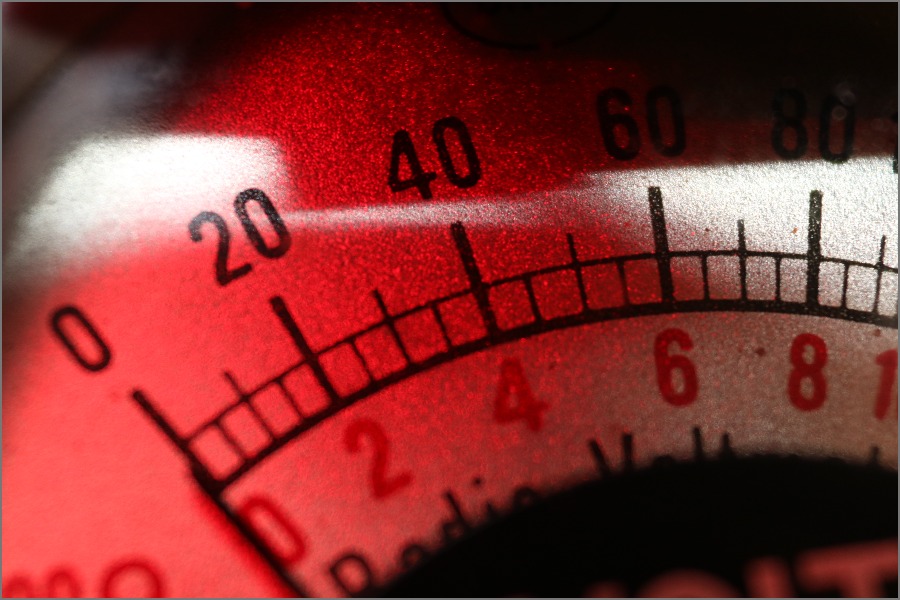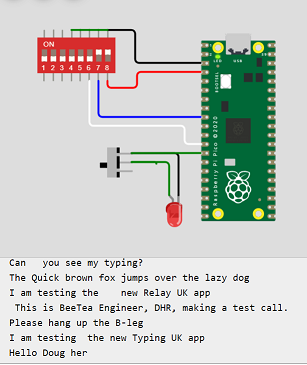

This web site collects together a few ideas, demos, and experiments.

This web page is a hobby site.
I am interested in sailing, and electronics.
20 years ago, I used a PIC micro controllers, to turn on a cassette recorder to record the Radio 4 Shipping forecast while on a yacht away from the marina.
Automating the sailing club boat diary provided a motivation to learn about web and get hands on experience.
At the start time we used dial up modems, so coding for the Web browser was the focus.
My first two computers were the Science Of Cambridge MK14 and Nascom 2. They came with circuit diagrams.
Nowdays the Arduino and Raspberry Pi and Pico provide a way to dabble.
Please follow the links at the top of the page.

At some point, my site will be migrated here.
To explore a problem, I can use use webpages, and javascript to experiment and explore. I can make notes in the code or webpage text.
The webpages are intended for the writer. It could be that the only other readers are random AI tools and chat bots.
This is a scrap book of notes and links.
My Wiki: http://ccgi.dougrice.plus.com/cgi-bin/wiki.pl [index] | https://www.dougrice.co.uk/cgi-bin/wiki.pl [index]
My Web Site: http://www.dougrice.plus.com/ | http://ccgi.dougrice.plus.com/ | http://www.dougrice.co.uk | http://patrickpi.local:8080/
My github: https://github.com/doug-h-rice

Web Audio can enable a webpage to generate audio.
USB modem controlled by Webpage on Edge or chrome

I had a need to type a stream of characters at about the speed you could type them on a Laptop Keyboard or smart phone.
Later on, two streams would type, to simulate a conversation. They each type a phrase in turn.
The service is sumarised in the diagram below. The user types what they want to say and the Advisor types the response.
There is a need to soak test long duration calls. Doing it properly is very difficult. This solution is SMART with its workarounds.

I set up a call and positioned the cursor where I wanted the typing and then enabled my devices to AutoType. It was the best I could do at the time.
The text below is typed with a random delay between each character. It repeats, optionally alternating between a fast and slow speed.
ts: 00009761 ms GA This is BeeTea Engineer, DHR, making a test call.GA Please hang up the B-leg GA I am testing the new text relay app GA Hello Doug here GA Can you see my typing? GA The Quick brown fox jumps over the lazy dog GA I am testing the new telay relay app GA ts: 00113746 ms GA
More notes:- Auto Type Introduction | Auto Type - early notes
The App needed a slow stream of repeatable text to soak test it and fill up scroll buffers, over many minutes.
If both ends type at the same time, the conversation presented to the users get muddled and difficult to read.
It would be nice if the devices can type in turn. A bit of wire enables the devices to co-ordinate when they are typing.
timeline:- A-leg: | typing |GA| waiting | typing |GA| waiting | typing B-leg: | waiting | typing |GA| waiting | typing |GA| waiting
Below is a picture of various Atmel 32u4 based Arduino Leonardo variations AutoTyping into the App.
Possibly using this sketch: KeyboardRP2.ino

An OTG cable can be used to plug an external keyboard into a smart phone.
An early simulation on a webpage:
http://www.dougrice.plus.com/dev/DigiSpark/text2.html - DigiSparks
and
http://www.dougrice.plus.com/dev/DigiSpark/text3.html - tries out different agregations
A simulation using WOKWI: AutoType simulation on Rasberry Pico
How does your simple automation tool read a smartphone screen or press buttons on the on screen keyboard?
How does the automation "hear" the GA?
What is available?
The Arduino Leonardo can be programmed as a USB Keyboard.
https://docs.arduino.cc/language-reference/en/functions/usb/Keyboard/
The Arduino Leonardo can also be programmed as a USB Keyboard and mouse, and it has digital inputs and outputs and serial ports.
The USB keyboard cannot "hear" the other end or read what they are typing to wait for GA or a pause.
The Arduino Leonardo devices have inputs and outputs which can be used to enable and co-ordinate when they are typing.
The devices are connected together using a "Wired-AND/OR" bus. When IDLE, set the pin to INPUT_PULLUP.
So the AutoType devices asserts OUTPUT LOW while it is typing and removes this assert when it stops typing and goes IDLE. After a pause, it holds off starting to type until it sees IDLE.
A switch can also assert a LOW to holdoff typing the next phrase.
Use one for the User and another one for the Advisor.

An Arduino Leonardo, Raspberry PICO, and DigiSpark can be programmed to press keys on a keyboard
You need to use the mouse to select the input box that you type into, then enable typing.
It is possible to use an external keyboard and OTG cable plugged into a smart phone.
Automating this is possible
Automating these is near impossible
Automation could be simplified if an agreed sequence of keystrokes triggered test events.
Below is a collection of Atmel 32u4 bases Arduino Leonardo and DigiSparks.
A Raspberry Pico can also be used.

There was a need to soak test the App with what ever typing could be achieved, and the DigiSparks and example were available.
These pages write up some notes and ideas.
AutoType - Automating pressing keystrokes using DigiSparks , Arduino Leonardo and Raspberry Pico
DigiSparks - DigiSpark - https://www.instructables.com/Digispark-DIY-The-smallest-USB-Arduino/
The Arduino documentation had an example that sent keyboard keystrokes.
One example was:
https://github.com/arduino/ArduinoCore-mbed/ ... /examples/Keyboard/Keyboard.ino
The DigiSpark also came with a KeyBoard example.
https://github.com/digistump - examples/Keyboard/Keyboard.ino
I modified it, and here is a version just for the DigiSparks.
DigiSpark sketch ( 2025-09-04 ): DigiSpark/digi3/digi3.ino
It types slowly, and a switch connected to input P2 can be used to enable / disable typing the next phrase. Shorting P0 to GND HALTS typing
After you position the cursor and select the input box where you normally type, plug the device in and it starts typing the list of phrases.
You can optionally use two or more DigiSparks connected together so they take turns typing.
They wait for P2 to go IDLE before typing their next phrase.

Getting the code to work on the different boards has made it a bit cluttered and over complicated.
ts: 00009761 ms GA This is BeeTea Engineer, DHR, making a test call.GA Please hang up the B-leg GA I am testing the new Text Relay app GA Hello Doug here GA Can you see my typing? GA The Quick brown fox jumps over the lazy dog GA I am testing the new Text Relay app GA ts: 00113746 ms GA
The Arduino HID Keyboard example provided a solution to provide the stream of typing for the soak testing.
Getting a device to see and read off a glass screen and understand the text typed by a remote keyboard is a massive challenge.
A bit of wire allows two devices take turns in typing.
Using the OTG USB Keyboard interface enabled it to be used with over 10 different devices, once the cursor had been moved to where the typing was required.


